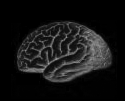
|
Basic Innate Emotions
- Happy – response to well-being
- Sad – response to loss
- Angry – response to threat
- Fear – response to danger
Emotional Intelligence
- Ability to recognize own emotions and other's
emotions (know what happened)
- Ability to identify own emotions and other's
emotions (know what they are)
- Ability to assess own emotions (self-monitoring)
and other's emotion (evaluate them)
- Ability to accept own emotions and other's emotions
(without judgment or rejecting them)
- Ability to respond own emotions and other's
emotions cognitively (to guide behavior and decisions)
Importance of Emotional Intelligence (EQ – emotional
intelligence quotient)
- Physical intelligence (IQ) does not always lead
to prudent decisions. Why?
- Because decision-making is often heavily influenced
by underlying emotions.
- Although decision-making is a logical deduction
process, emotions alter the logic by changing the
premise in which logical decision is made.
- Once the premise is change, the decision is logically
altered as a result.
- If emotions are not recognized cognitively, they
often misguide us into making poor
jugement in the decision making process.
- For instance, anger often misled us into making
decisions that we regret making if we were calm.
Grieving / Healing Process – Stages of Grieving
for loss of valuables and loved ones
- Shock / Disbelief / Denial – What?
This is not happening.
- Questioning / Anger / Blaming – Why is
it happening?
- Bargaining / Negotiating / Begging – Please
turn back the hands of time.
- Helplessness / Sadness / Loneliness – Reality
sinks in, there is nothing anyone can do.
- Acceptance / Resolution / Hope – Come
to terms with it, let go and move on to the peaceful
stage.
More Emotional Science 101
- Under Construction

|

